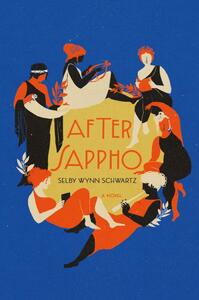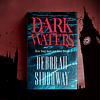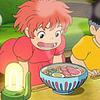Take a photo of a barcode or cover
reflective
slow-paced
Plot or Character Driven:
Character
in theory this book kinda has everything I like but in reality it's just boring
I think the idea is really good and it's a nice weaving together of feminist and sapphic history, but the execution is bland and comes across a bit pretentious
I think the idea is really good and it's a nice weaving together of feminist and sapphic history, but the execution is bland and comes across a bit pretentious
I’m finding it really hard to get on with the writing style and am not pulled into the story enough that I want to return to it unfortunately!
adventurous
hopeful
inspiring
reflective
medium-paced
3.5 really liked the concept and reading some of the incredibly beautifully written chapters, did not enjoy the overall execution as the story didn’t come together for me and there was quite significant repetition in parts.
"It is not true that nothing happened to Sappho except her own life. Have you forgotten that a poet lies down in the shade of the future? She is calling out, she is waiting. Our lives are the lines missing from the fragments. There is the hope of becoming in all our forms and genres. The future of Sappho shall be us" (168).
In so many ways, this felt oriented with endearing and unsettling precision towards my niche interests. Paris in the 1880s-1920s? YES. Lyrical fragments of Sappho throughout? YES. Meditating on the beauty of art created by women in diverse mediums? YES. Experimental stream-of-consciousness writing/unconventional novel? YES. Virginia Woolf and Colette and other faves? YES.
I could not wait to get to the end and peruse the Bibliographic Note to see all of Schwartz's sources!!! You can tell this project has been so thoroughly (and lovingly) researched—what a feat. After Sappho is a book that makes me want to check out a mountain of books from the library and pick up the pen to write, which is some of the highest praise I think I can bestow on a work.
Modernism pals, please read this posthaste! Thanks, Edinburgh Book Festival. :')
In so many ways, this felt oriented with endearing and unsettling precision towards my niche interests. Paris in the 1880s-1920s? YES. Lyrical fragments of Sappho throughout? YES. Meditating on the beauty of art created by women in diverse mediums? YES. Experimental stream-of-consciousness writing/unconventional novel? YES. Virginia Woolf and Colette and other faves? YES.
I could not wait to get to the end and peruse the Bibliographic Note to see all of Schwartz's sources!!! You can tell this project has been so thoroughly (and lovingly) researched—what a feat. After Sappho is a book that makes me want to check out a mountain of books from the library and pick up the pen to write, which is some of the highest praise I think I can bestow on a work.
Modernism pals, please read this posthaste! Thanks, Edinburgh Book Festival. :')
So what comes after Sappho? Who are the women who have walked in her footsteps, searching for something beyond themselves, beyond the gendered roles that society seeks to impose on them? This is one of those rare books that take you utterly by surprise. A dreamy, hybrid novel of fiction and fact while crafting both into an exploration of gender, feminism, lesbianism and the societal norms and laws which operate to swallow or confine those women that must live their lives in defiance of them.
As a scholar of marital and divorce laws, as well as the history of feminism that has helped shaped them, I was delighted to find that the author was able to put into an almost poetical diatribe many of the reasons why I find the historic laws of marriage - and what it is to be a wife - so insidious, where women must exist 'in a little hollow between laws' (p. 32). It is such an accurate description of the historic laws (including in England, pursuant to the legal doctrine of coverture) where a woman's identity was subsumed into that of her husband the moment that she became a wife, annihilating herself. So many of the laws that shackle women are for the benefit of men, not for the protection of women, as is observed early in the book: 'we ourselves were the small gift, pawned for the future of the fatherland.' (p. 23) And, as the author subverts this assertion, the women of this book become a gift for the reader, while reclaiming their own voices, showing us reason after unassailable reason why women deserve the freedom to simply be, to close the door on those who question your fulness as a person (pp. 75, 6).
Scathing in its assessment of the way in which men view women, critiquing the male gaze that plagues and oppresses, and the laws used to do so, the author freely acknowledges that the best revenge that one can take on certain men is to brazenly rewrite them. In this book, though, it is not the writing on the men that matters. It is how she reframes the lives of the women - with unassailable fearlessness, allowing them to soar from the pages, an antidote to the scores of women who have had their lives leached from them, consumed, eaten, by men.
There is so much more to take from this book. The depiction of trees (the cypress and rowan in particular) is exquisitely artistic and the drawing on mythology, particularly the story of Cassandra and her relationship with the future, is relevant and searing in the way it empowers.
This book also shows the importance of the press. It is no surprise to note that this book was published by an independent publisher. Would it have been published by the mainstream press? Difficult to say for certain, but I doubt it. It doesn't fit any of the genre norms that modern day publishing seeks to shoehorn books into. But as is observed: 'With a press of one's own, literature became less a wasteland of critics and more a moment of glistening like pigment, red or black on the page.' (p. 210). This book certainly attests to that.
It is a book to revel in, to lose yourself in the words, in the history, in the poetry, a book, as it proclaims, to gorge and sate ourselves. And the future of Sappho? You might find that in these pages too.
As a scholar of marital and divorce laws, as well as the history of feminism that has helped shaped them, I was delighted to find that the author was able to put into an almost poetical diatribe many of the reasons why I find the historic laws of marriage - and what it is to be a wife - so insidious, where women must exist 'in a little hollow between laws' (p. 32). It is such an accurate description of the historic laws (including in England, pursuant to the legal doctrine of coverture) where a woman's identity was subsumed into that of her husband the moment that she became a wife, annihilating herself. So many of the laws that shackle women are for the benefit of men, not for the protection of women, as is observed early in the book: 'we ourselves were the small gift, pawned for the future of the fatherland.' (p. 23) And, as the author subverts this assertion, the women of this book become a gift for the reader, while reclaiming their own voices, showing us reason after unassailable reason why women deserve the freedom to simply be, to close the door on those who question your fulness as a person (pp. 75, 6).
Scathing in its assessment of the way in which men view women, critiquing the male gaze that plagues and oppresses, and the laws used to do so, the author freely acknowledges that the best revenge that one can take on certain men is to brazenly rewrite them. In this book, though, it is not the writing on the men that matters. It is how she reframes the lives of the women - with unassailable fearlessness, allowing them to soar from the pages, an antidote to the scores of women who have had their lives leached from them, consumed, eaten, by men.
There is so much more to take from this book. The depiction of trees (the cypress and rowan in particular) is exquisitely artistic and the drawing on mythology, particularly the story of Cassandra and her relationship with the future, is relevant and searing in the way it empowers.
This book also shows the importance of the press. It is no surprise to note that this book was published by an independent publisher. Would it have been published by the mainstream press? Difficult to say for certain, but I doubt it. It doesn't fit any of the genre norms that modern day publishing seeks to shoehorn books into. But as is observed: 'With a press of one's own, literature became less a wasteland of critics and more a moment of glistening like pigment, red or black on the page.' (p. 210). This book certainly attests to that.
It is a book to revel in, to lose yourself in the words, in the history, in the poetry, a book, as it proclaims, to gorge and sate ourselves. And the future of Sappho? You might find that in these pages too.
fast-paced
Plot or Character Driven:
Character








